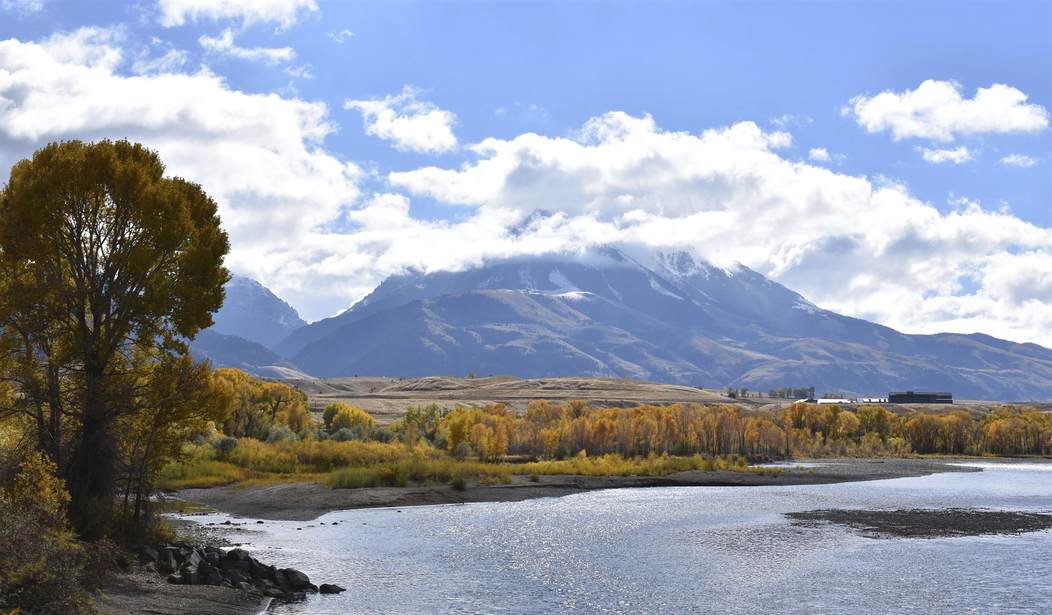A frequent slogan heard in the outdoor community is “keep public lands public.”
The catchy #KeepItPublic and #PublicLandOwner hashtags accompanying this mantra are heavily populated on social media. Over the last few years, public lands advocacy has gone mainstream. Seizing upon this momentum, outdoor retailer Patagonia, for example, publicly waged war on former President Trump—accusing him of being a despoiler of natural resources.
But where are these vocal advocates today when public lands access is actually under attack? (Crickets.)
Public lands belong to us. And efforts by the Biden administration to curb access—under the guise of health restrictions or to incrementally ban public land hunting—must be countered.
In the Age of COVID, Being Outdoors is Safer
If there’s a silver lining to the pandemic, it’s renewed interest in the Great Outdoors.
Escaping the indoors is perfectly in line with CDC guidelines, which says, “You are less likely to be exposed to COVID-19 during outdoor activities, even without the use of masks…” (While maintaining six feet apart, of course.)
The COVID pandemic even inspired the “Responsible Recreation” campaign in line with social distancing.
With this in mind, why is access being restricted—even as Americans get vaccinated? It makes no sense.
National Parks: For the Benefit and Enjoyment of the People—Even During COVID
In 1903, the Roosevelt Arch at Yellowstone National Park’s north entrance was erected and inscribed with the following: “For the Benefit and Enjoyment of the People.”
This phrase derived from the 1872 bill that created the park. It noted Yellowstone would be “dedicated and set apart as a public park or pleasuring-ground for the benefit and enjoyment of the people.”
Recommended
The agency that oversees all 63 National Parks, the National Park Service (NPS), was born from the Organic Act of 1916. It echoed similar platitudes contained in the original bill, stating, “The service thus established shall promote and regulate the use of the Federal areas known as national parks...to provide for the enjoyment of the same in such manner and by such means as will leave them unimpaired for the enjoyment of future generations.”
If National Parks are for our enjoyment, how come Biden’s Interior Department, which oversees the NPS, is now restricting access on COVID grounds?
Yosemite National Park in California will “require advanced reservations for day visitors during the peak summer season to limit the number of visitors and allow social distancing amid the pandemic.”
Moreover, employing this reservation system is said to be a tool of environmentalists to limit park visitors. Worse—after Yosemite employed this system last year, park attendance decreased by half:
Rocky Mountain National Park and Glacier National Park are putting in place similar rules, which have been encouraged for decades by environmental groups but resisted by gateway communities whose economies depend heavily on tourism.
A similar day-use reservation system was in place last summer. It resulted in Yosemite’s visitation rates dropping by half.
Making advanced reservations for camping is reasonable, but putting an arbitrary cap on day use? Ludicrous.
National Parks attendance was steadily declining—until COVID. According to a 2014 U.S. Forest Service report, visitation rates peaked in the 1990s.
While recreational visits to the system as a whole have remained fairly stable, visitation to the 58 major nature-based national parks-the "crown jewels" such as Yellowstone, Yosemite, and the Grand Canyon-actually peaked in 1997 at 69.4 million visits, and has since declined nearly 7% to 64.6 million visits in 2010.
Making the experience more expensive—and thereby inconvenient— for those who aren’t wealthy leads to fewer visitors. Thus, not “for the benefit and enjoyment of the people.”
Congresswoman Lisa McClain (R-MI) has offered a legislative remedy to prevent Interior Secretary Deb Haaland from using COVID–19 “as a basis for restricting or limiting outdoor recreational use of land or water administered by the National Park Service.”
“Our national parks belong to our country’s taxpayers and outdoor recreation should not be limited due to COVID-19,” said Rep. McClain. “The science says it is safe, so let’s follow the science and stop using the coronavirus as an excuse to further limit American’s freedoms.”
Restricting Public Hunting Access in Alaska
National Parks aren’t the only public lands potentially being closed off to the public.
Biden’s Interior Department has proposed closing nearly 60 million acres of federal land reserved for caribou and moose hunting in Alaska.
Outdoor Life’s Tyler Freel observed:
The forthcoming public hearing was announced Friday by the Department of the Interior for public consideration of Temporary Wildlife Special Action Request WSA21-01, which would close all federal lands within Game Units 23 and 26A to moose and caribou hunters who aren’t “federally qualified subsistence users” from Aug. 1 through Sept. 30, 2021, which happens to coincide with the non-resident hunting season for caribou in Unit 23, and most of it in Unit 26A.
Sportsmen’s Alliance similarly argued the proposal isn’t rooted in science, noting, “The proposal to close millions of acres of public hunting land has been introduced by a regional board that advises the Federal Subsistence Board. However, no scientific data or specific reasons have been posted on the Federal Subsistence Board’s website on why this public land needs to be closed and hunting limited.”
If this happens, it’ll displace sportsmen and women—the biggest drivers of conservation funding—from the equation. In turn, it could lead to future closures of public hunting lands there and here in the Lower-48.
Conclusion
The aforementioned examples of closures aren’t rooted in conservation.
This is textbook preservationist environmentalism—a philosophy confused for the former, but one that’s anathema to our nation’s conservationist ethos.
This is why true conservationists warned about a potential Biden administration and why, in hindsight, many believe the Trump Interior Department’s agenda was unfairly maligned.
Follow the science—keep public lands open!

























Join the conversation as a VIP Member